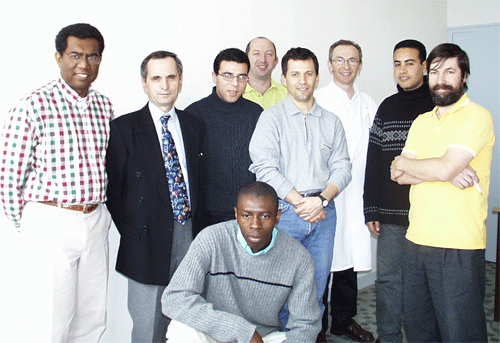Jean-Marc Grenèche was born in April 1956 in South Normandy, France. During his childhood he lived in a rural village, where his parents were farmers. After attending primary and secondary school, he went to Le Mans in 1974 to study Solid State Physics at the University, and then to Paris since he was also working in a high school. He graduated in 1979 from Paris University, and was introduced to Mössbauer spectrometry in a research laboratory, the leader of which was François Varret, Professor at the University of Le Mans.
This site is supervised by Mössbauer Effect Data Center, Dalian Institute of Chemical Physics, Chinese Academy of Sciences, 457 Zhongshan Road, Dalian 116023, China. Contact email: medc@dicp.ac.cn



